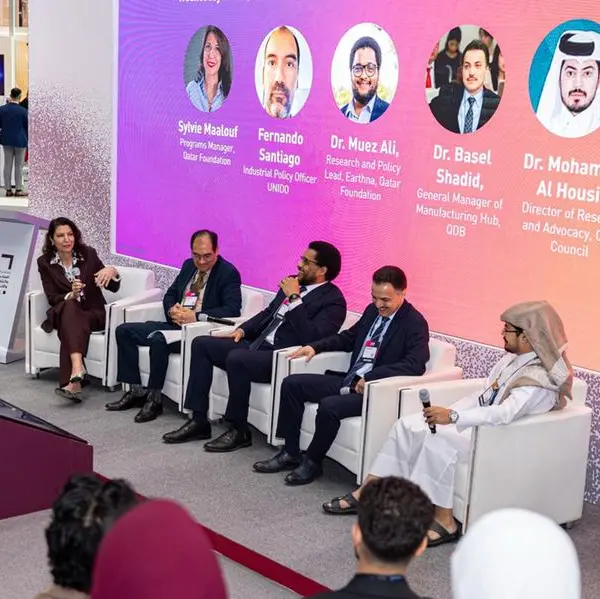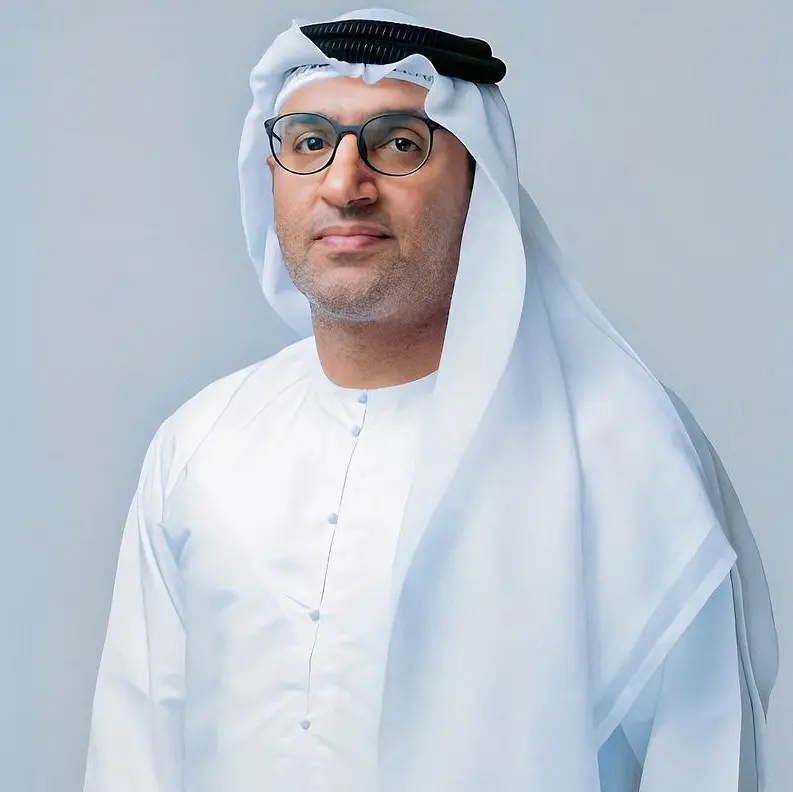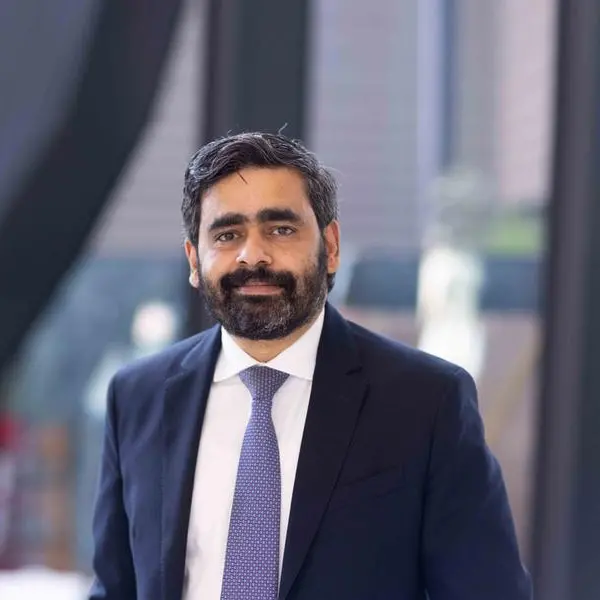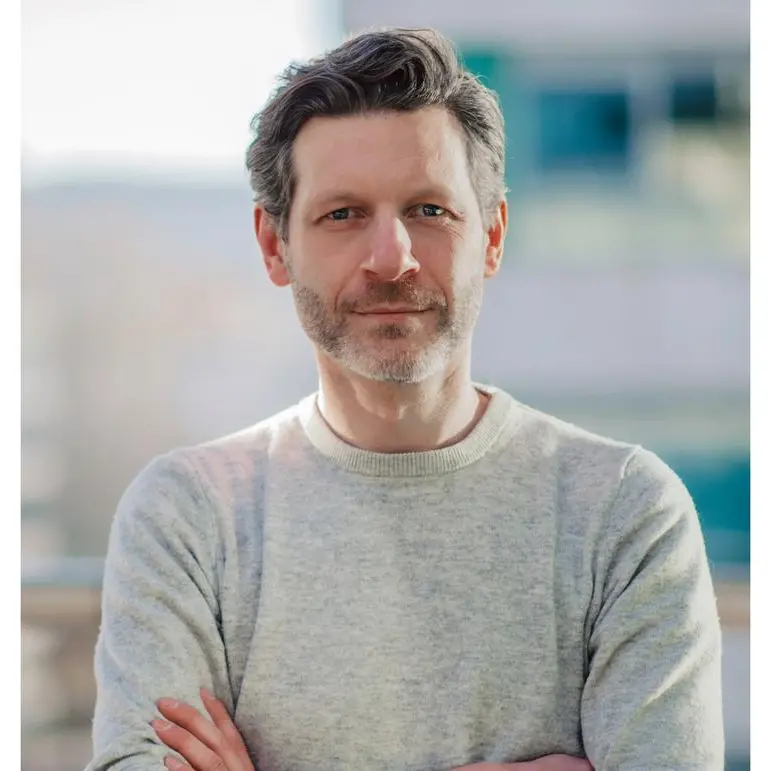PHOTO
- The UAE is uniquely positioned to work constructively with other members of the international trade community to take collective actions that will positively impact the lives of billions of people
Abu Dhabi, UAE – The UAE Ministry of Economy, in collaboration with Crescent Enterprises and Gulftainer, launched a report titled ‘Trade 2050: A Private Sector Perspective’ during The World Trade Organization’s 13th Ministerial Conference from February 26th to 29th, 2024 at the Abu Dhabi National Exhibition Centre (ADNEC), in Abu Dhabi, UAE.
The report was announced by His Excellency Dr Thani bin Ahmed Al Zeyoudi, Minister of State for Foreign Trade at the annual session of the Parliamentary Conference on the World Trade Organization.
His Excellency Dr Thani Al Zeyoudi, said: “The history of the UAE has been shaped by trade and we are keen to help shape its future. As new technologies emerge and economies seek to become more sustainable and environmentally responsible, the global trading system must constantly evolve to meet new forms of exchange. It is important that we in the global trading community always anticipate the forces impacting supply chains. This new report, which gathers the thoughts of key private-sector players from around the world, seeks to identify some of those forces – and the agility, adaptability and foresight we must demonstrate to keep pace with them. Only by understanding what trade might look like in 25 years’ time, can we develop a system that is fairer and fully future-proofed”.
Badr Jafar, Chief Executive Officer of Crescent Enterprises, a UAE-headquarterd multinational diversified business, revealed some of the main findings of the report at the WTO’s MC13’s Ceremonial Gala dinner which took place on Monday, 26th February. Addressing trade ministers and senior officials from around the world, along with representatives of several local and federal entities and the private sector, Mr. Jafar outlined the importance of joint efforts between the public, private and civil sectors in tackling the rapid technological, socioeconomic, political and environmental changes that will take place over the coming years, adding:
“In today’s dymanic environment, the need to react to ever-changing realities can be all-consuming. It is during such times of transition that as policy makers, companies and individuals, we have a duty and an opportunity to look beyond our own immediate interests. By deepening our collaboration across borders, sectors and disciplines we are able to help shape the major paradigm shifts that will transform the future of trade.
The UAE, underpinned by its highly strategic location, world-class infrastructure and strong international relationships, is uniquely positioned to work constructively with other members of the international community to address the various challenges that confront us and realise the many opportunities that are within our grasp. I remain optimistic that by working together, we can create a more prosperous and sustainable future – in which trade is able to flourish anew, and nobody is left behind.”
This report serves as a crucial discussion document on the forces anticipated to impact the trading system over the next 25 years. It emphasizes the evolving relationship between trade, geopolitics, and global commerce, which is significantly influenced by overarching megatrends such as rapid technological advancements. The report highlights the rising prominence of emerging economies, the transformational role of technology, the rapid growth of service trade, and the importance of sustainability in global trade. The purpose of this report is to prompt relevant stakeholders to take the needed and timely collective actions to anticipate potential risks, be prepared for future challenges and capitalise on available opportunities.
The report discusses not only how the methods of conducting trade will transform, but also how the commodities being traded will evolve. It highlights the necessity for adapting to emerging technologies, integrating growing economies into global trade, committing to sustainability, supporting SMEs, and acknowledging the significant contribution of the services sector to the global economy. The report advocates for collaboration, innovation, and the development of inclusive regulatory frameworks to ensure a resilient and sustainable future for global trade.
Commenting on the future of trade, Tim Haas, Group Chief Operating Officer at Gulftainer, a leading operator of ports and terminals, and a provider of customised supply chain and logistics solutions, said:
“As part of the global supply chain, it is essential for us to be forward-looking and anticipate the forthcoming changes that will impact the future of the industry in the coming decades. By proactively adapting to the potential challenges and foreseeing opportunities in the global trade, we will be able to better prepare our organisations and serve our customers. The future of trade 2050 paper is a reflection of the required collaboration amongst public and private sectors to ensure a better trading environment for all."
This report serves as a testament to the UAE's efforts and position as a major gateway for global trade and investment and its proactive role in shaping the discourse surrounding international and inclusive trade.
The full report can be found here.
Formed in 1995, the World Trade Organization is the international body that supervises the rules of international trade. Its biannual Ministerial Conference is considered its topmost decision-making forum, bringing together ministers and senior officials from all member states with the aim of reviewing and updating rules that shape the global trading system.
About Crescent Enterprises
Crescent Enterprises is a leading multinational company, growing diversified global businesses that are sustainable, scalable, and profitable. Headquartered in the United Arab Emirates, with business operations in 15 countries, it operates under four enterprise platforms:
CE-Operates, an operating business platform, focusing on smart infrastructure as the main driver of economic development and growth.
CE-Invests, a strategic investment platform investing in late-stage businesses and private equity funds.
CE-Ventures, a corporate venture capital platform targeting early-stage technology-enabled high-growth businesses and venture capital funds globally.
CE-Creates, an internal business incubator, building start-ups that are socially and environmentally conscious.
Crescent Enterprises operates with a value system and culture that embraces corporate governance, inclusive growth, and responsible business practices.
http://www.crescententerprises.com
LinkedIn.com/company/crescent-enterprises
Twitter.com/CrescentEnterp
About Gulftainer
Gulftainer is a leading operator of ports and terminals and a provider of customised supply chain and logistics solutions headquartered in Sharjah, UAE.
Since its inception in 1976, the company was the first to operate a container terminal in the Middle East, which is Sharjah Container Terminal. Over the past 50 years, it has taken great strides in expanding on its tailored trade solutions to customers by keeping them at the heart of its business and became a trusted supply chain enabler in niche markets.
Today, Gulftainer’s portfolio encompasses managing container terminals in the UAE (Sharjah Container Terminal and Khorfakkan Container Terminal), KSA (Jubail Commercial Port and Jubail Industrial Port), Iraq (Iraq Container Terminal and Umm Qasr Logistics Centre) and USA (Canaveral Cargo Terminal), along with freight forwarding, supply chain operations and logistics through its subsidiaries, Momentum Logistics and Avalon Transport.



















